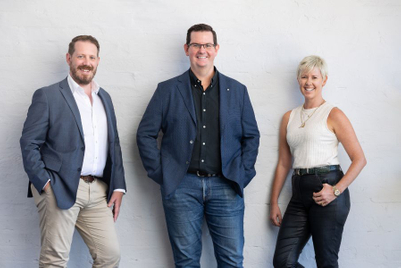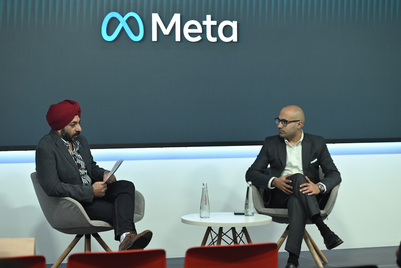.jpg&h=570&w=855&q=100&v=20250320&c=1)
Pete Stein, global president of Merkle and global practice president of Dentsu’s Customer Experience Management (CXM) Service Line, is bullish about India’s potential to drive significant growth for the organisation. Overseeing Merkle’s Americas operations—which account for over 70% of the company’s global revenue—Stein sees India as a critical player in Merkle’s growth story, not just for its contribution to the bottom line but also for its wealth of talent driving innovation.
In an engaging conversation with Campaign India, Stein discusses India’s evolving role within Merkle, the organisation’s investment in the region, the challenges CMOs face with digital transformation, and the promise of Gen AI in reshaping marketing strategies. His vision for Merkle’s future in India is ambitious yet grounded in the region’s proven ability to deliver innovation and talent.
As he prepares to double the country’s revenue contribution, his focus on empowering Indian teams and leveraging their expertise in AI, machine learning, and customer experience ensures that Merkle’s Indian operations will play a pivotal role in shaping the global CXM landscape.
Here are the edited excerpts from the interview:
You led the acquisition of LiveArea in 2021 to expand Merkle’s global experience and commerce capabilities. How has this acquisition strengthened Merkle’s positioning globally and in India? And how would you gauge its success in the past three years?
Along with acquiring LiveArea, we also brought in India-based Extentia, a company focused on customer experience, and Shift7, which specialises in B2B commerce within the Salesforce ecosystem.
Historically, Merkle’s expertise lay in data science, activating that data into marketing channels like CRM, loyalty programmes, and paid media. However, customer experience doesn’t end there; it extends to brand interactions on websites and apps. These acquisitions were designed to provide end-to-end capabilities across the customer journey, and they’ve been wildly successful.
These acquisitions have not only enhanced our capabilities but also brought incredible talent into our organisation. For example, Naazneen Boocha, founder of Pune-based Extentia, now leads global delivery for Merkle’s experience and commerce operations. This reflects how these acquisitions have empowered talent to take on larger roles within our global framework.
Merkle Americas currently drives the lion’s share of revenue. Could you elaborate on India’s role in Merkle’s growth strategy? Specifically, what is India’s contribution to global revenue and workforce?
India’s contribution to our global business is about 5% in terms of revenue, but this understates its true value. Teams here support clients in the US, Europe, and Australia, making their contribution far greater than just local revenue.
Moreover, I see India’s revenue share doubling in the next few years, as the market matures from a customer experience standpoint. The talent in India, particularly in AI and machine learning, is central to our strategy. Extentia and Ugam, which we acquired in 2019, have been instrumental in advancing our work in these areas.
What investments is Merkle making in India to harness this growth potential, and how does India fit into Merkle’s broader innovation framework?
Our primary investment is in acquiring and nurturing great talent, whether through recruitment or acquisitions like Extentia and Ugam. Product innovation is another focus. For example, our customer recognition and identity resolution platform were co-developed by teams in India.
Similarly, a lot of our work around Gen AI originates here. My visit to India is to meet with the team and align on our investment priorities for the next 18 months.
Have you identified any immediate focus areas for product development?
Our product development focuses on three key areas. The most mature is GenCX, a tool that uses client data to provide natural language insights into campaign performance and predict future outcomes. This was developed collaboratively by our teams in India and the US.
The second area is personalisation at scale, particularly in content supply chains. Last year, Dentsu acquired Tag Group, and Merkle works closely with them to deliver personalised experiences. Adobe also hired us as one of their two global creative agencies of record, recognising our expertise in this area.
The third and newest area involves Gen AI-enabled bots, which automate tasks like customer service. For instance, we’re working with a client whose employees have shifted to a four-day work week, with Gen AI bots filling the gap. This not only improves efficiency but also enhances employee satisfaction.
With 63% of marketing leaders planning to invest in Gen AI but grappling with issues like data privacy, consent, and evolving technology, how does Merkle help clients navigate these challenges?
Integrating Gen AI successfully requires a clear understanding of its value. Clients often get caught up in experimenting with cool tech but need to focus on use cases that deliver real value. We encourage them to start with pilot projects and robust testing. For example, we worked with a global brand on its third attempt at marketing transformation. This time, they were very clear about the business case and prioritised high-value use cases. Aligning marketing, IT, and finance teams is crucial, as it ensures the organisation is on the same page and speeds up the transformation process.
Many companies are using Gen AI for personalised customer support and content creation. What are your thoughts on how customers might perceive AI-crafted content in the future?
Customer perceptions of AI content are evolving, but there’s still work to be done. Companies need to make it easy for customers to switch to human support when needed and ensure continuous learning to optimise content and experiences.
Transparency is key—letting customers know whether they’re interacting with a bot or a human builds trust. The ultimate goal is to empower customers while maintaining a seamless experience.
While CMOs focus on digital CX, organisational silos remain a challenge. How can CMOs implement unified strategies to create cohesive customer experiences?
It starts with infrastructure—a unified data lake that integrates customer, marketing, and transactional data. With the right digital and customer data platforms in place, CMOs can enable unified experiences.
Selling this vision to the board and aligning all departments is critical. Agile teams that respond to customer feedback and manage the digital ecosystem holistically are essential. It’s a long journey, but breaking down silos is necessary for delivering seamless customer experiences.
Many companies still rely on legacy systems that are not agile or compatible with new tech. How does Merkle address this challenge?
Legacy systems are a common hurdle, whether it’s mainframes or outdated POS systems. We advocate a pragmatic approach, building trust with clients by showing quick wins and delivering value.
Often, the first step is extracting customer data into a cloud-based platform like Snowflake, making it easier to work with. Leapfrogging old technology is possible but requires significant investment and time. Partnering with an experienced provider who can demonstrate immediate value is key.


.jpg&h=334&w=500&q=100&v=20250320&c=1)
.jpg&h=334&w=500&q=100&v=20250320&c=1)
.jpg&h=334&w=500&q=100&v=20250320&c=1)


.jpg&h=334&w=500&q=100&v=20250320&c=1)








.jpg&h=268&w=401&q=100&v=20250320&c=1)
.jpg&h=268&w=401&q=100&v=20250320&c=1)


